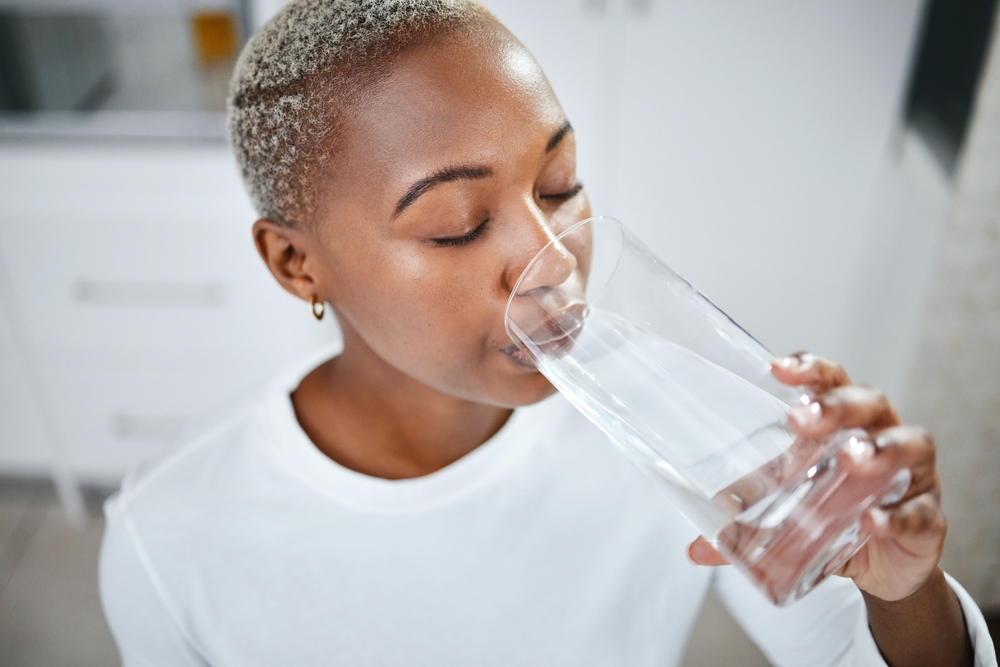You blame your constant thirst on summer heat, air conditioning, or not drinking enough water, but persistent thirst that doesn’t improve with increased fluid intake could be your body’s way of alerting you to serious underlying health conditions. While temporary thirst from exercise, heat, or dehydration is normal, chronic thirst that interferes with daily life often signals medical problems requiring professional evaluation.
Understanding the difference between normal thirst and pathological thirst can help you recognize when your body is trying to communicate something more serious than simple dehydration. Persistent thirst, especially when accompanied by other symptoms, warrants medical attention rather than just drinking more water.
Diabetes disrupts fluid balance in multiple ways
Type 1 and Type 2 diabetes commonly cause excessive thirst as one of the earliest and most noticeable symptoms, often appearing before people realize they have blood sugar problems. High glucose levels in the blood cause the kidneys to work overtime trying to filter out excess sugar, leading to increased urination and subsequent thirst.
The cycle of high blood sugar, excessive urination, and intense thirst creates a feedback loop where drinking more fluids temporarily relieves thirst but doesn’t address the underlying glucose problem. This pattern often worsens gradually, making it easy to dismiss as normal variation rather than recognize as a medical warning sign.
Diabetic thirst typically feels different from normal thirst – it’s often described as unquenchable or overwhelming, persisting even after drinking large amounts of fluid. The thirst may be accompanied by frequent urination, unexplained weight loss, fatigue, and blurred vision.
Even prediabetes can cause increased thirst as blood sugar levels begin fluctuating outside normal ranges, making excessive thirst an important early warning sign that could prompt intervention before diabetes fully develops.
Kidney dysfunction affects fluid regulation
Chronic kidney disease impairs the kidneys’ ability to concentrate urine and maintain proper fluid balance, leading to excessive thirst as the body attempts to compensate for inefficient kidney function. This thirst often occurs alongside increased urination, particularly at night.
Kidney problems can develop gradually over years without obvious symptoms, making persistent thirst one of the few early warning signs that something is wrong. The thirst associated with kidney disease often doesn’t respond proportionally to fluid intake because the underlying filtration problem persists.
Urinary tract infections, kidney stones, or other acute kidney problems can also trigger excessive thirst as the body responds to inflammation and altered kidney function. These conditions may cause additional symptoms like pain, burning during urination, or changes in urine appearance.
Certain medications that affect kidney function, including some blood pressure medications and diuretics, can also cause increased thirst as a side effect of their impact on fluid and electrolyte balance.
Hormonal imbalances create thirst patterns
Diabetes insipidus, despite its name, is unrelated to blood sugar diabetes but involves problems with antidiuretic hormone that controls how the kidneys handle water. This rare condition causes extreme thirst and urination that can consume a person’s entire day with bathroom trips and fluid consumption.
Thyroid disorders, particularly hyperthyroidism, can increase metabolic rate and cause excessive thirst along with other symptoms like rapid heartbeat, weight loss, and heat intolerance. The increased metabolism creates higher fluid needs while also affecting temperature regulation.
Hormonal fluctuations during pregnancy, menopause, or other life transitions can temporarily affect thirst patterns, but persistent changes warrant evaluation to rule out more serious endocrine problems.
Certain psychiatric medications, particularly lithium and some antipsychotics, can interfere with normal thirst regulation and kidney function, creating medication-induced excessive thirst that requires monitoring and potential dose adjustments.
Dehydration causes aren’t always obvious
Some medications, including antihistamines, decongestants, and certain antidepressants, can cause dry mouth and increased thirst as side effects without actually improving with increased fluid intake. The thirst results from medication effects rather than true dehydration.
Autoimmune conditions like Sjögren’s syndrome attack the glands that produce saliva and tears, creating persistent dry mouth that triggers constant thirst even when fluid levels are adequate. This condition often affects middle-aged women and may be overlooked as normal aging.
High sodium intake from processed foods can create chronic low-level dehydration that manifests as persistent thirst, but this dietary cause often requires significant sodium reduction rather than just increased water intake to resolve.
Sleep-disordered breathing, including sleep apnea, can cause mouth breathing that leads to dry mouth and morning thirst that persists throughout the day. The connection between sleep problems and thirst often goes unrecognized.
When to seek medical evaluation
Thirst that persists despite adequate fluid intake warrants medical evaluation, particularly when accompanied by increased urination, unexplained weight changes, fatigue, or other concerning symptoms that suggest underlying medical problems.
Keep track of your fluid intake and urination patterns to provide healthcare providers with specific information about the extent and timing of your thirst symptoms. This documentation can help identify patterns that point toward specific conditions.
Don’t dismiss persistent thirst as normal aging or environmental factors if it represents a significant change from your usual patterns or interferes with daily activities and sleep quality.
Seek immediate medical attention if excessive thirst is accompanied by severe symptoms like confusion, rapid heartbeat, difficulty breathing, or signs of severe dehydration that could indicate medical emergencies requiring prompt treatment.
Blood tests can quickly identify many common causes of excessive thirst, including diabetes, kidney problems, and electrolyte imbalances, allowing for early intervention that can prevent complications and restore normal fluid balance.











